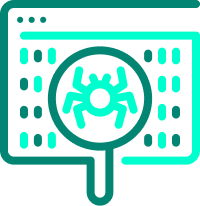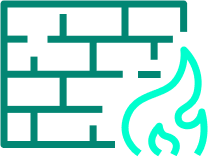Website Malware Removal & Protection
All-in-One Protection for Your Website.

-
Guaranteed Malware Removal
-
Protection Against Future Hacks

-
24/7 Security Team

-
30-Day Guarantee

How to Initiate Malware Removal
Follow these steps to remove malware:
Malware Removal Request
Initial Baseline Scanning
Malware Removal Request
Total Removal and Review
Reliable Website Security Solutions
24/7 website security with zero hidden costs – built for small businesses, web professionals and enterprise organizations.
-
-
30-DayGuarantee
-
PlatformAgnostic
-
24/7 SecurityTeam
Basic Platform
Perfect for bloggers and small site owners requiring occasional cleanups with ongoing security scans.
$229/yr
Buy NowPro
PlatformIdeal for SMBs who want to minimize disruptions with advanced support for quick SSL certificate transfers.
$339/yr
Buy NowBusiness
PlatformFastest response time for malware cleanups with frequent scans to help detect and protect against vulnerabilities.
$549/yr
Buy NowJunior Dev
Ideal for freelancers, web pros, and agencies with 2-5 sites requiring quick SLAs, access to trained reps, and comprehensive malware protection.
$999.98/yr
Chat NowMulti-Site & Custom Plans
Designed for web pros and agencies looking for enterprise level features and coverage for 10+ sites.
Price upon request
Chat Now -
-
Site covered
Each plan applies for 1 site. If you need multiple sites, speak to our chat agents or give us a call for volume discounts.
1
1
1
5
Call: 1–888–873–0817
-
Malware & hack removals by our security experts.
Unlimited manual cleanups included on every plan with no hidden fees.Unlimited
Unlimited
Unlimited
Unlimited
-
SLA to remove Malware
Ticket response time is an estimate and resolution time may vary based on complexity and volume of tickets in our queue.30 hrs
12 hrs
6 hrs
12 hrs
Multi-site discounts
-
Website Application Firewall (WAF)
Cloud-based WAF that actively blocks malicious traffic.
Seamless integration
-
Complete website security scan frequency
Monitor things that matter: Malware, Blocklist, DNS, Uptime, malicious redirects and SEO spam.Every 12 hrs
Every 6 hrs
Every 30 mins
Every 6 hrs
Emergency response SLAs
-
Post-cleanup basic report
Get a basic summary of the files that were cleaned and what next steps are to ensure ongoing protection
Custom server configuration
-
Blocklist Monitoring & Removal
Protect your brand’s reputation by knowing when your site is blocklisted and remove the headache of getting it removedDedicated support team
-
SSL Support & Monitoring
All platforms Support SSL but only the pro and business plans can be preloaded with your existing purchased SSL.
Advanced
Advanced
Advanced
-
CDN Speed Enhancement
Our content delivery network (Anycast) improves page speed and reduces server load by 60% on average.
-
Chat Now
-
-
30-DayGuarantee
-
PlatformAgnostic
-
24/7 SecurityTeam
Basic
FirewallPerfect for bloggers and small site owners requiring traffic protection, site performance & peace of mind.
$9.99/mo
Buy NowPro
FirewallPerfect for bloggers and small siteowners requiring occasional cleanupswith ongoing security scans.
$19.98/mo
Buy NowMulti-site & Custom Plans
Designed for web pros and agencies looking for enterprise level features and coverage for 10+ sites.
Price upon request
Chat Now -
-
Site covered
Each plan applies for 1 site. If you need multiple sites, speak to our chat agents or give us a call for volume pricing.
1
1
Call: 1–888–873–0817
-
Malware & hack removals by our security experts.
Unlimited manual cleanups included on every plan with no hidden fees.
-
SLA to remove malware
Ticket response time is an estimate and resolution time may vary based on complexity and volume of tickets in our queue.
Multi-site discounts
-
Post-cleanup basic report
Get a basic summary of the files that were cleaned and what next steps are to ensure ongoing protection
Seamless integration
-
Frequency of advanced security scans
Frequency of advanced security scans
Emergency response SLAs
-
Website Application Firewall (WAF)
Cloud-based WAF that actively blocks malicious traffic.
Custom server configuration
-
Blocklist Monitoring & Removal
Protect your brand’s reputation by knowing when your site is blocklisted and remove the headache of getting it removed
Dedicated support team
-
SSL Support & Monitoring
All platforms Support SSL but only the pro and business plans can be preloaded with your existing purchased SSL.
-
CDN Speed Enhancement
Our content delivery network (Anycast) improves page speed and reduces server load by 80% on average.
-

Experienced Security Analysts
Our dedicated researchers monitor active malware campaigns. With a trained team of analysts, we aim to provide the best malware removal service around.

Comprehensive Scans
Best in class tools and scripts scan your website for malware in real-time. Our security analysts examine the source code to detect any irregularities. No hack is too complex for our incident response team to detect and fix.

Fast Response Times
If you need immediate assistance, we can accommodate. Choose a plan that fits your needs. Chat with us to learn about our one-time priority cleanup service.

Unlimited Cleanups
We specialize in eliminating complex malware infections. We guarantee your fixed price, regardless of frequency or level of sophistication. All website security packages cover your site for a year, including unlimited cleanups, pages, and databases.

Reliable Support
Consider us an extension of your team, with professional security analysts available 24/7/365, you never have to worry about dealing with a hacked site alone.

Platform Agnostic
Your site is a perfect fit for Sucuri, whether you use a CMS or not. We fix any website malware infection and specialize in open-source content management systems.

Malware Removal
Repair and restore hacked websites before it damages your reputation. You can rely on our dedicated incident response team and state-of-the-art technology to cleanup website malware & viruses.
-
Remove Website Malware
-
Repair SEO Spam
-
Remove Blocklist Status
-
Remove Backdoors

Boost Performance
Our CDN enhances network availability and increases site speed. Built on our global network of secure data centers – visitors, customers, and search engines will notice a dramatic improvement.
-
Website Speed Optimization
-
Multiple Caching Options
-
Reliable Website Up Time
-
High Availability and Redundancy

Firewall Protection
The Sucuri Website Firewall is a cloud-based WAF that stops website hacks and attacks. Our continuous research improves detection and mitigation of evolving threats.
-
Geo-Blocking
-
Prevent Zero-Day Exploits and Hacks
-
DDoS Mitigation and Prevention
-
Virtual Patching and Hardening

